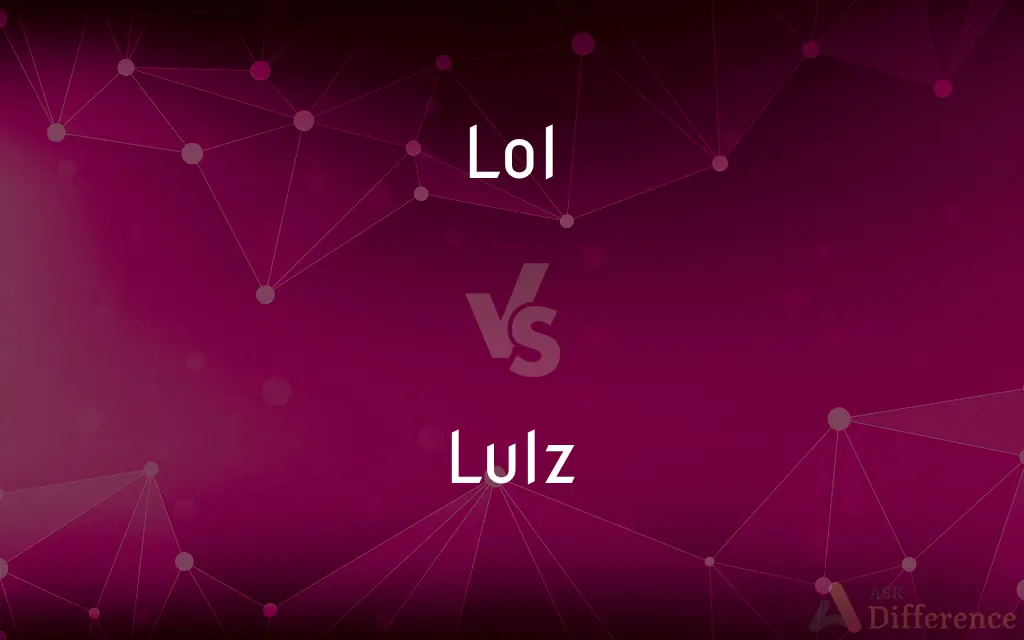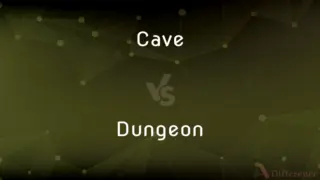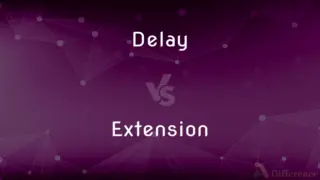Lol vs. Lulz — What's the Difference?
By Urooj Arif & Maham Liaqat — Updated on April 23, 2024
"Lol" is a common internet slang term for "laugh out loud," expressing amusement. "Lulz" refers to laughs obtained at someone else's expense, highlighting the motive behind the laughter.

Difference Between Lol and Lulz
Table of Contents
ADVERTISEMENT
Key Differences
"Lol," short for "laugh out loud," is a widespread expression used in digital communication to indicate something is funny or amusing, often serving as a reaction to a joke or a humorous situation. It has become a staple in online conversations, texts, and social media, reflecting a broad and general sense of humor or amusement. In contrast, "lulz" is a term derived from "lol" but with a specific nuance; it denotes laughter or amusement gained at the expense of others or from their misfortune. Originating from online cultures and communities,
While "lol" functions as a versatile marker of amusement, applicable in a wide range of contexts without necessarily implying malice or ridicule, "lulz" is more niche and often associated with internet trolling, pranks, and cyberbullying. The use of "lulz" can signal an underlying intent to provoke, entertain, or disrupt, typically among those within certain online subcultures. This distinction points to different attitudes towards humor and its social implications, where "lol" is generally benign and "lulz" can be contentious or controversial.
The evolution of "lol" into "lulz" reflects the dynamic nature of internet slang and the development of distinct subcultures within online communities. While "lol" has been absorbed into everyday language, transcending digital communication to denote laughter or amusement broadly, "lulz" remains more closely tied to the ethos of internet culture, embodying a more anarchic and sometimes transgressive approach to humor.
Despite their differences, both terms underscore the role of humor and laughter in social interactions, whether online or offline. "Lol" enhances communication by conveying light-heartedness or amusement, making it a tool for social bonding. "Lulz," however, serves a more complex role, balancing between humor, social critique, and at times, the ethical boundaries of entertainment. This complexity not only illustrates the multifaceted nature of digital communication but also highlights how cultural norms and values shape the interpretation and use of language in online environments.
"Lol" and "lulz" represent different facets of digital culture's engagement with humor. "Lol" encapsulates the universal experience of laughter in a concise, widely recognizable form, fostering connection and understanding. "Lulz," on the other hand, reflects a more subversive strand of humor that challenges conventional boundaries, inviting reflection on the ethics and impact of online behavior.
ADVERTISEMENT
Comparison Chart
Meaning
Laugh out loud, indicating amusement
Laughs at someone else's expense
Connotation
Generally positive or neutral
Often negative or associated with trolling
Usage Context
Broad and versatile in digital communication
Specific to online subcultures and trolling
Social Implication
Enhances social bonding and light-hearted communication
Can imply schadenfreude or cyberbullying
Evolution
Integrated into everyday language
Remains niche, tied to specific online cultures
Compare with Definitions
Lol
Expression of amusement.
That joke made me lol.
Lulz
Cyberbullying humor.
They thought cyberbullying was just for lulz.
Lol
Digital laughter.
I can't stop lol-ing at these memes.
Lulz
Laughter from pranks.
They did it for the lulz.
Lol
Universal humor marker.
Lol, that was unexpected!
Lulz
Trolling for amusement.
Posting that video was all about the lulz.
Lol
Textual reaction to humor.
Your story was so funny, lol.
Lulz
Subversive internet laughter.
The hacker group claimed they were doing it for the lulz.
Lol
Online laughter cue.
Lol, you're hilarious!
Lulz
Schadenfreude online.
Getting lulz from someone's reaction.
Lol
Used to draw attention to a joke or amusing statement, or to express amusement
I love how you said ‘coffee is not my cup of tea’. LOL!
Lulz
(Internet slang) Fun; amusement; humor; especially schadenfreude.
Lol
Laugh audibly or be amused
I was LOLing at the teeny tiny little sign
I literally LOL'd when the updates popped up
Lol
Alternative form of LOL
Lol
Alternative case form of LOL
Lol
Alternative form of LOL
Common Curiosities
How is "lulz" different from "lol"?
"Lulz" refers to laughs at someone else's expense, often linked to trolling or pranks, whereas "lol" is a broad expression of amusement.
Can "lol" be used in formal communication?
"Lol" is generally informal and best suited for casual or personal communication.
Why do people say "lulz" instead of "lol"?
People use "lulz" to indicate amusement derived from someone else's discomfort or misfortune, often in the context of internet trolling.
Is using "lulz" always negative?
While "lulz" can have negative connotations, its interpretation depends on the context and the intent behind its use.
How have "lol" and "lulz" impacted online culture?
These terms have shaped online humor and communication, with "lol" fostering connectivity and "lulz" reflecting the edgier sides of internet subcultures.
Are "lol" and "lulz" accepted in all online communities?
Acceptance varies; "lol" is widely recognized, while "lulz" may be more niche or controversial.
How does the use of "lulz" reflect on internet ethics?
The use of "lulz" can raise questions about internet ethics, especially concerning respect, privacy, and the impact of online actions.
Is it possible to convert "lulz" users to more positive forms of humor?
Education and awareness about the impact of online behavior can encourage more positive and inclusive forms of humor.
Can "lol" lose its meaning through overuse?
Like any slang, "lol" can become less impactful if overused, but it remains a key part of digital communication.
Can "lol" and "lulz" be considered part of internet history?
Yes, both terms are significant in the evolution of internet language and culture.
What does "lol" stand for?
"Lol" stands for "laugh out loud," used to express amusement or laughter.
How do "lol" and "lulz" influence digital literacy?
Understanding these terms and their nuances is part of digital literacy, reflecting the complexity of online communication.
How do new internet users react to "lol" and "lulz"?
New users may need context to understand "lulz," while "lol" is more immediately recognizable as an expression of laughter.
Share Your Discovery

Previous Comparison
Cave vs. Dungeon
Next Comparison
Delay vs. ExtensionAuthor Spotlight
Written by
Urooj ArifUrooj is a skilled content writer at Ask Difference, known for her exceptional ability to simplify complex topics into engaging and informative content. With a passion for research and a flair for clear, concise writing, she consistently delivers articles that resonate with our diverse audience.
Co-written by
Maham Liaqat















































